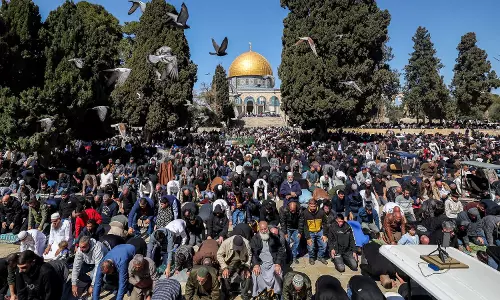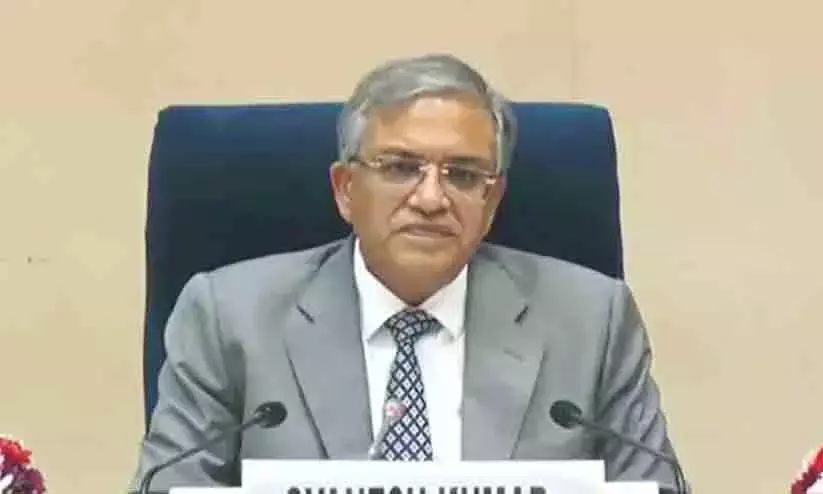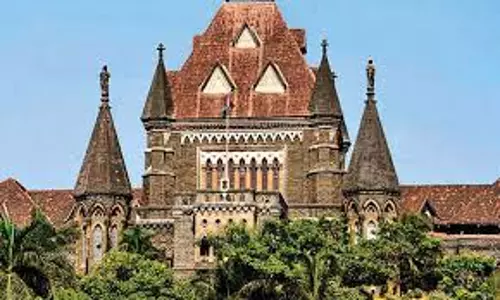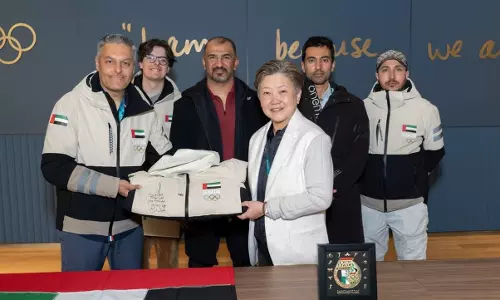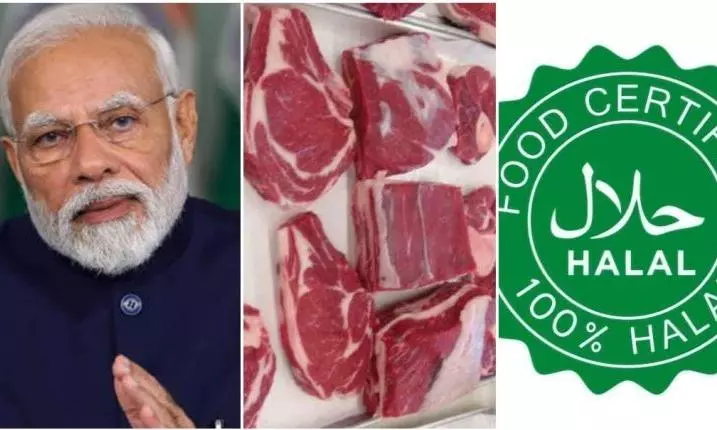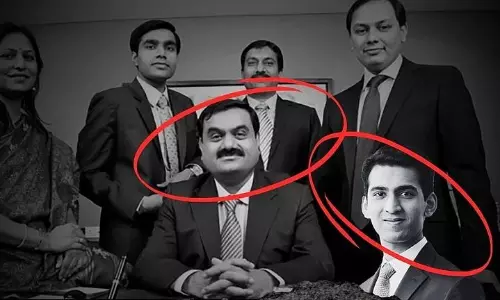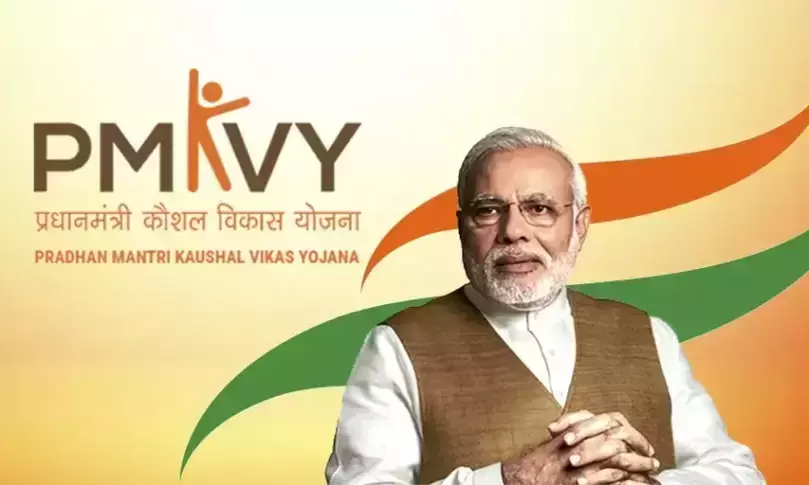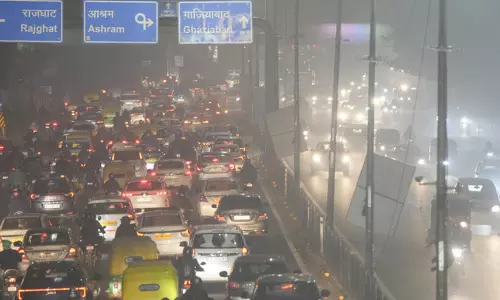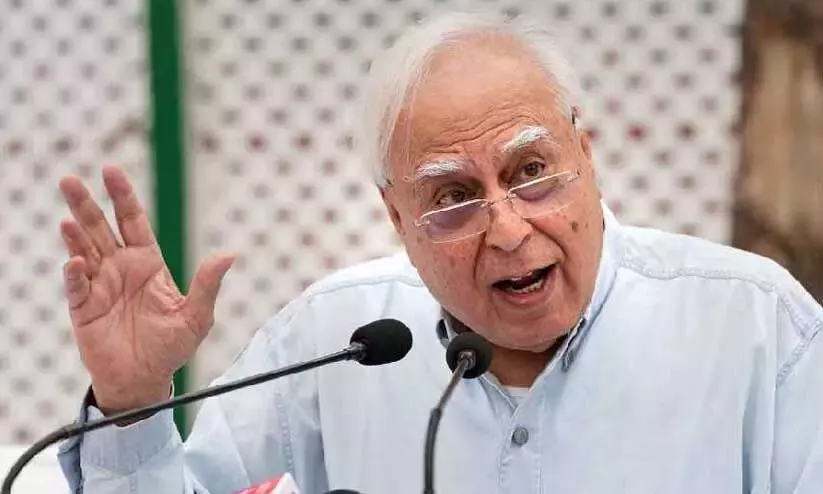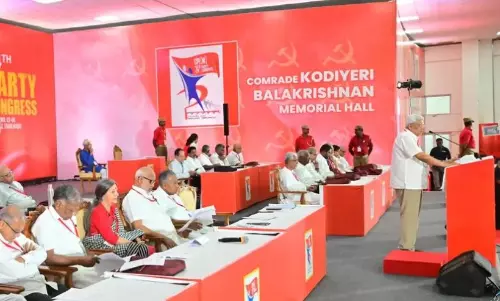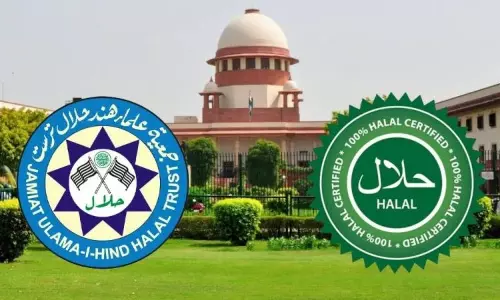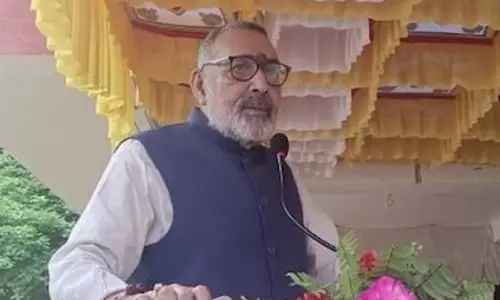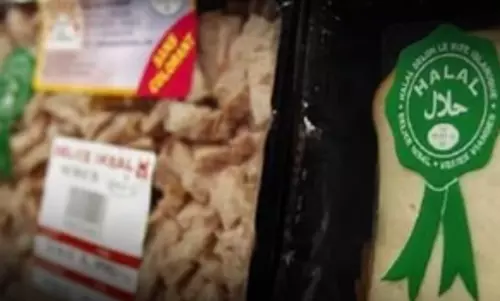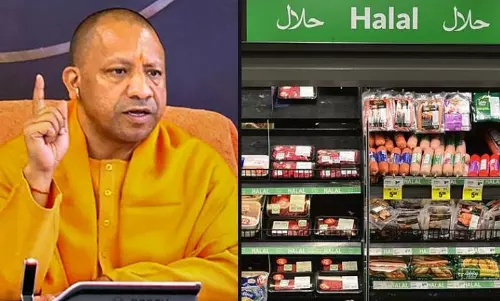
Boosting meat export certification becomes ‘Halal’ for Modi Govt
text_fieldsAmid the Hindutva group hullaballoo against the Halal certification, the Narendra Modi government has streamlined the Halal certification process for meat products, aimed at boosting meat exports from India.
Critics argue that Halal meat products, which are processed in accordance with Islamic law and involve specific methods of animal slaughter, conflict with Hindu beliefs. The Hindutva factions have consistently expressed their objections, claiming that the certification, which involves invoking the name of ‘Allah’ during the slaughter process, is not acceptable to Hindus in India.
In a notification issued on October 1, 2024, by the Directorate General of Foreign Trade (DGFT), titled “Streamlining of Halal Certification Process for Meat and Meat Products,” the government announced that specified meat and meat products would be allowed to be exported as ‘Halal’ certified to 15 countries, provided they are produced, processed, and packaged in facilities certified under the ‘India Conformity Assessment Scheme (I-CAS) – Halal’ of the Quality Council of India (QCI).
Furthermore, the DGFT specified that exporters must present a valid Halal certification to the buyers in the importing countries after shipments have been made. This policy change aims to clarify the conditions surrounding the export of specified Halal meat and meat products, a crucial move as the global demand for Halal-certified food continues to rise.
The new certification process comes as the DGFT has included 15 countries—13 of which are Muslim—where Halal-certified meat and food products will be exported from India. Many Muslim countries require Halal certification for the import of meat and related products, and various private companies, trusts, and NGOs in India are responsible for providing this certification.
Notably, organizations like Jamiat Ulama-i-Hind Halal Trust and Halal India Pvt Ltd are significant players in this certification process, marking food and products that meet the requirements for export to Muslim-majority countries.
The Halal certification bodies are also registered with the International Halal Accreditation Forum (IHAF), an international network dedicated to enforcing Halal standards in their respective economies. These organizations are also members of the World Halal Food Council, further solidifying the legitimacy of their certifications.
Interestingly, despite the ongoing protests from certain segments of society, a considerable portion of the Halal meat export market is dominated by Hindus. Reports indicate that while Muslims benefit from the regulated slaughter of animals, the majority of meat exports come from non-Muslim producers.
The global Halal food market is projected to reach a staggering $3.9 trillion by 2027, indicating a growing demand for Halal products worldwide. Even non-Muslim countries such as the Philippines and Singapore have made Halal certification mandatory for imported meat products, reflecting the increasing acceptance of Halal standards beyond the Muslim world.
Halal certification serves as a guarantee that food is prepared according to Islamic law and is free from prohibited substances. It requires that animals be slaughtered in a specific manner—through the throat, oesophagus, and jugular veins—rather than by methods like the ‘Jhatka’ technique, which involves striking the neck of the animal.
In 2023, the Uttar Pradesh government deemed Halal certification as confusing and unenforceable, arguing that it creates a parallel system that obfuscates food quality. The state’s order asserted that the right to determine food quality resides solely with the authorities designated under Section 29 of the Food Safety and Standards Act. This legislation is intended to uphold the standards of food items within the jurisdiction of the law.
Following the UP government's stance against Halal certification, several cases were filed against entities such as Halal India Private Limited in Chennai, Jamiat Ulama-i-Hind Halal Trust in Delhi, and the Halal Council of India in Mumbai, among others.
In response to the allegations from the UP government, Jamiat Ulama-i-Hind Halal Trust described them as “baseless” and vowed to take necessary legal measures to counter what it termed as misinformation. As the Modi government moves forward with its streamlined Halal certification process, all eyes are now on Uttar Pradesh Chief Minister Yogi Adityanath and other prominent Hindutva leaders.





